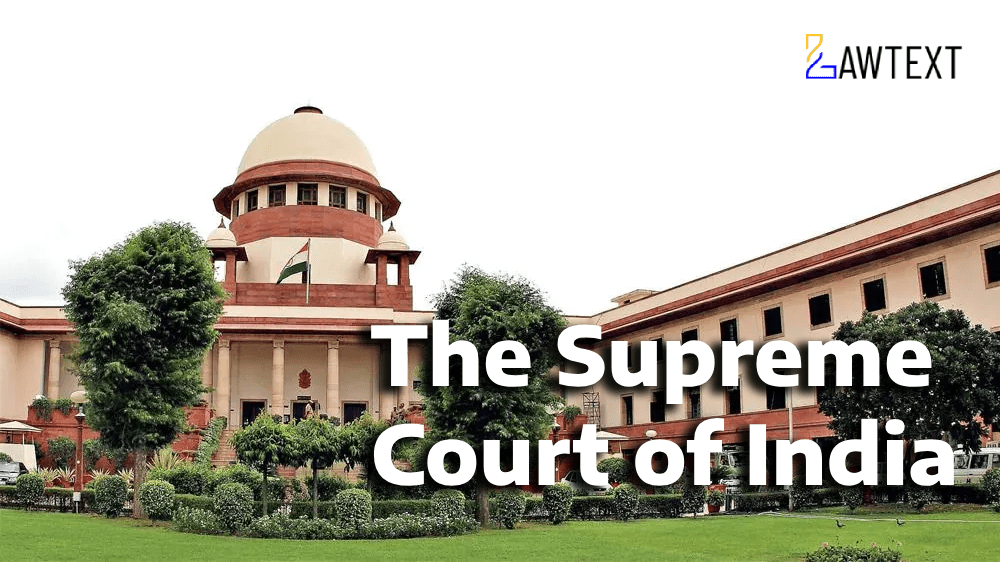

The Supreme Court set aside the judgments of the Single and Division Bench of the Calcutta High Court. The Apex Court held that the tenancy rights inherited under the West Bengal Premises Tenancy Act, 1956, cannot be retrospectively curtailed by the 1997 Act unless expressly stated. The appellants, who inherited tenancy rights in 1970, were ruled to retain their tenancy rights beyond 2014, as the 1997 Act does not have a retrospective effect.
The case arises from a landlord-tenant eviction suit where the appellants challenged the High Court's decision that upheld a judgment based on an "admission" made in another case, leading to their eviction from a Kolkata property. The suit was filed by the respondent, Karnani Properties Ltd., demanding vacant possession of the property.
The landlord relied on the appellant's admission in a different case to claim eviction, invoking Order XII Rule 6 of the CPC. The court ruled that this admission did not meet the legal standards of an unequivocal admission necessary to pass judgment under this provision.
The crux of the case involved whether the appellants, having inherited tenancy under the West Bengal Premises Tenancy Act, 1956, could be evicted under the West Bengal Premises Tenancy Act, 1997, which limits tenancy rights to five years after the tenant’s death.
The appellants argued that their tenancy rights, inherited in 1970, could not be curtailed by the 1997 Act as the Act did not apply retrospectively. They relied on previous Calcutta High Court judgments affirming that tenancy under the 1956 Act should not be affected by the new legislation.
The respondent landlord argued that the appellants' tenancy had expired in 2014, five years after the death of the original tenant's widow, relying on the 1997 Act's provisions, which were interpreted as retrospective by the High Court.
The Supreme Court disagreed with the Calcutta High Court’s interpretation of the 1997 Act. It observed that the 1997 Act does not expressly state a retrospective application and upheld the tenants’ inherited rights under the 1956 Act.
The Apex Court emphasized that the legislature's intent must be clear for a law to have retrospective effect. In this case, the 1997 Act's vague language led to a misinterpretation. The Court criticized the ambiguous drafting of Section 2(g), which caused confusion.
The Supreme Court set aside the judgments of the Single and Division Bench of the Calcutta High Court. The appellants were held to be lawful tenants, and their tenancy rights were deemed unaffected by the 1997 Act, as there was no express retrospective application.
The Supreme Court held that tenancy rights inherited under the West Bengal Premises Tenancy Act, 1956, could not be extinguished by the 1997 Act unless it clearly expressed an intention to apply retrospectively. Therefore, appellants retained their tenancy rights as the 1997 Act does not automatically override the provisions of the 1956 Act.
Tenancy Law, Retrospective Legislation, Landlord-Tenant Dispute, Supreme Court Judgment, West Bengal Premises Tenancy Act, 1956, West Bengal Premises Tenancy Act, 1997, Eviction Law.
Citation: 2024 LawText (SC) (9) 206
Case Number: CIVIL APPEAL NOS. 3593-3594 OF 2024
Date of Decision: 2024-09-20
Case Title: RAJESH MITRA @RAJESH KUMAR MITRA & ANR. VERSUS KARNANI PROPERTIES LTD.
Before Judge: [SUDHANSHU DHULIA J. , PRASANNA B. VARALE J.]
Appellant: RAJESH MITRA @RAJESH KUMAR MITRA & ANR.
Respondent: KARNANI PROPERTIES LTD.